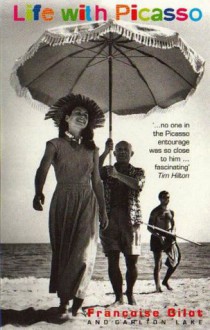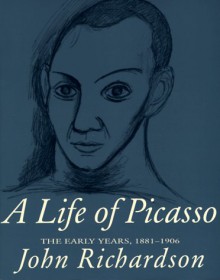
If you start thinking too deep about Gertrude Stein's motivation and headspace in writing this book it's easy to lose yourself in a hall of mirrors. Stein — noted, notable, an influencer before #influencers were a thing — wrote this book "largely to amuse herself" [according to the back cover] in the persona of her partner Alice Toklas, but largely about herself. It is easy to find ways throughout the book that she seems to play with the form, frustrate expecatations, amuse herself, which makes it fun but can also feel like an inside joke, especially if you're not in on the game.
I was expecting to get away from the popular vision of Stein into the actual writing. I was knew little more than what I had seen read in Ernest Hemingway's A Moveable Feast, which was written much later, and seen in the movie Midnight in Paris, which presents a fan-fiction version of Stein, Hemingway, Fitzgerald and others in the Paris social circles of the time. Stein, played by Kathy Bates, comes across as a kind of oracle, a sought after voice of guidance who dashes off short, enigmatic quips to her cadre of famous artists and writers.
To my surprise, my image hasn't changed that much after reading this book. I imagine this is at least in part an effect of the playfulness, playing into the image that had been built of her. She shows us the same ultra-cool group around her, they all come to 27 rue de Fleurus for advice which is always more quizzical than practical. But when you expect intimacy, she changes the subject, when you expect to hear about art she cuts you off with a neologism, you're ready for more Picasso but she has already drifted to Picabia.
The story constantly jumps from anecdote to anecdote, following thread forward through the years and back so that you lose track of the fact that the chapter that started 40 pages ago is supposed to be about 1907-1914. All her famous friends appear but rather than a revealing look, we get a glimpse and a quip. About Bebe Berard's paintings, she says, "they are almost something and then they are not." And Picabia, "although he has in a sense not a painter's gift he has an idea that has been and will be of immense value to all time." [I'll note that both these instances appear in the book attributed to Stein by Toklas.]
At the heart of my issue with this book, and the way it most conforms to the tell-all, is the assumption of a deep familiarity with the subject. Many things that are entirely uninteresting if it's some guy on the bus are suddenly newsworthy if it's done by Anne Hathaway. TMZ owes it's whole existance to this phenomenon and goofy sound effects. In more narrative stories, where the people are fictional or unknown, you would establish that connection between the reader and the principle characters, but in tell-alls and memoirs you can trade off the reader's existing connections to public figures.
Going back to Midnight in Paris, Owen Wilson [the only name I will ever use for any character he portrays] meets a man at the party who introduces himself as Scott Fitzgerald. He is dumbstruck and the audience is expected to be as well because it's assumed we all know who F. Scott Fitzgerald is. If we had given the name Charles Boyle it would have been a very strange scene, no person watching would have any reason to know why meeting this Charles guy was exciting.
So it is here at points. There are so many artists and wives and personalities that flit in and out and we get no characterization. Of course I was very interested in the Hemingway part not only because I like his work but because I know something of his biography. Picasso's work I really enjoy but I know little of his life so I didn't really know what to make of the events that happened to him. He is with Fernande, then he is with Eve and neither mean much to me. I am told Stein and Toklas like Fernande but that's about as high as the stakes get. I know almost nothing of Cezanne's biography though I love his painting, same with Matisse. Juan Gris and Braque, I know their names and a few pieces, and many I don't know at all.
That is why the writing feels so unconnected and why it dragged so much at moments, it sometimes felt like random pages torn out of a notebook and mixed up, there is a story there but I don't have all the pieces to make sense of it.
Adding to the slowness, Stein uses a conversational style, which here means following loose trains of thought and bouncing around between subjects and time periods. In my mind I could picture Toklas professionally lit for a documentary and just speaking for hours straight running through the notable events of her life with Stein. But it doesn't build to anything and the chapters run to about 50 pages so staying focused took some doing.
That is a lot of complaining for a book I enjoyed fine and may revisit someday, probably when I have learned more about Picasso and the art scene in early 20th century Paris. If that is your focus, this is surely a must-read, but if not, I'm hoping there are other routes into Stein that are more inviting.


 Log in with Facebook
Log in with Facebook 









